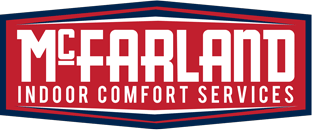Is HVAC Work a Capital Repair?
As a homeowner or property manager, understanding the distinction between capital repairs and regular maintenance is crucial for budgeting and tax purposes. One common question that arises is whether HVAC work qualifies as a capital repair. At , we aim to clarify this concept and help you make informed decisions about your HVAC system and its maintenance. Understanding Capital Repairs Capital repairs, also known as capital expenditures, are substantial investments made to improve, restore, or enhance the value and functionality of a property. These repairs typically extend the useful life of an asset, increase its value, or adapt it to a new use. Capital repairs are usually distinguished from regular maintenance, which involves routine upkeep and minor fixes to keep the property in good working condition. Types of HVAC Work HVAC work can range from minor maintenance tasks to significant system overhauls. Here are some common types of HVAC work and whether they generally qualify as capital repairs: Regular Maintenance Routine maintenance tasks, such as changing air filters, cleaning ducts, and performing annual tune-ups, are considered regular maintenance. These tasks are essential for keeping your HVAC system running efficiently but do not extend its lifespan or significantly enhance its value....
View Article